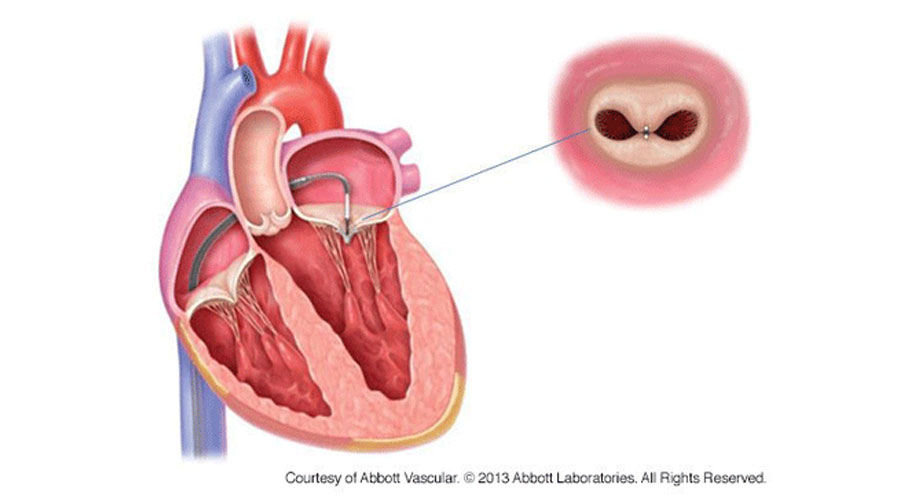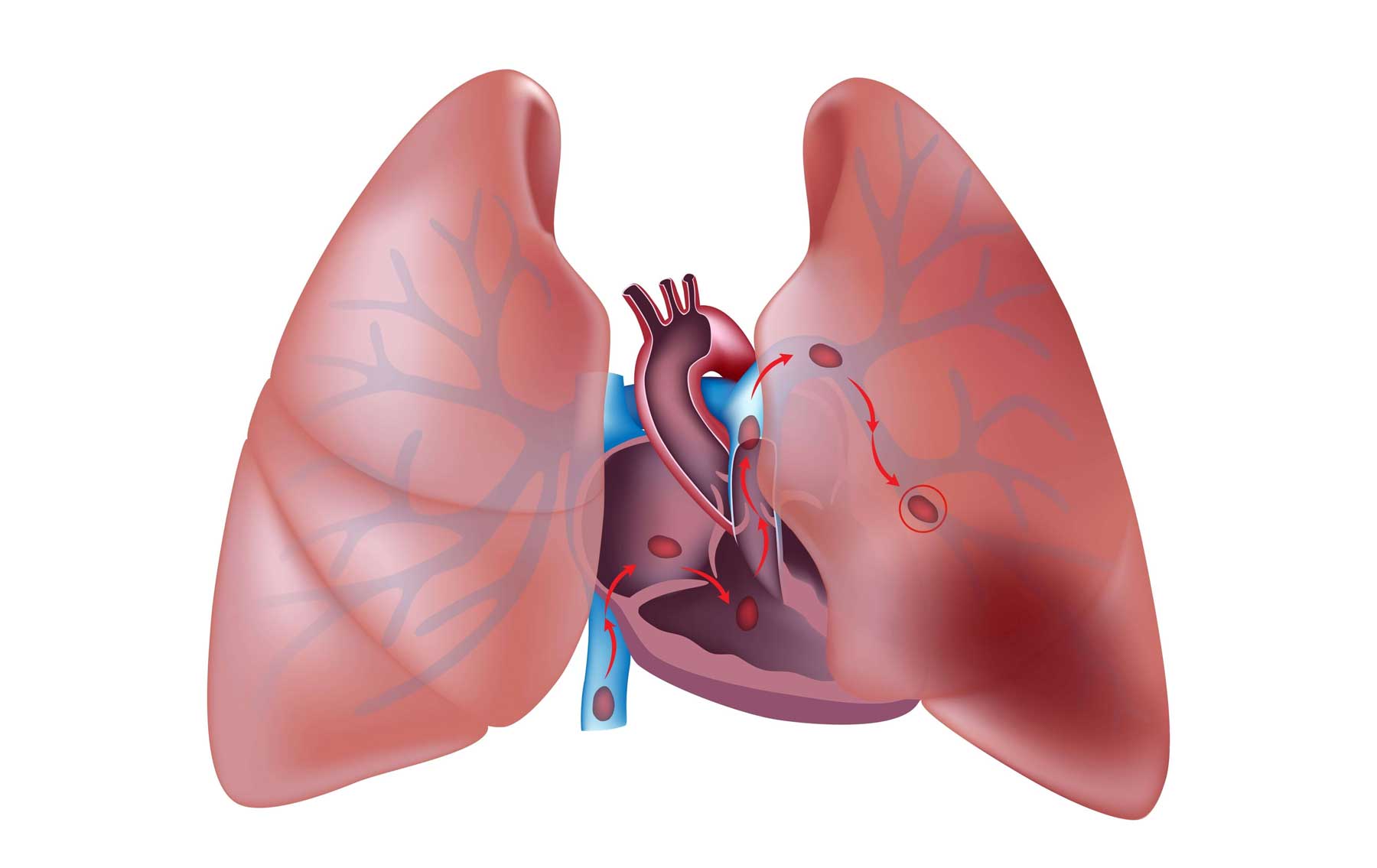Deep Vein Thrombosis Thrombosis is the formation of a blood clot (thrombus), which can partially…

Mitral Regurgitation
If the mitral valve does not close properly, the blood circulating through the heart may leak back into the left atrium (one of the two upper chambers of the heart) from the left ventricle (one of the two lower, pumping chambers of the heart). This condition, called mitral regurgitation or mitral insufficiency, increases the heart’s workload, causing the muscular heart wall to enlarge. The left atrium also becomes enlarged.
Mitral regurgitation often results from an abnormality of the mitral valve called mitral valve prolapse, which causes the valve to move abnormally when the ventricles contract. When the valve flaps do not meet to close, blood leaks back through the opening. Mitral regurgitation may be congenital (present at birth), or it may result from infective endocarditis, a potentially life-threatening infection of the inner lining of the heart muscle, or from any heart muscle disorder that causes the left ventricle to enlarge and widen.
Symptoms
Many people who have mitral regurgitation have no symptoms. Others may experience shortness of breath, fatigue, or other symptoms of congestive heart failure. The increased workload on the heart can permanently damage the left ventricle, preventing it from contracting properly and interfering with its ability to pump blood. If this occurs, the doctor will probably recommend replacing the valve. As the left atrium becomes enlarged, atrial fibrillation usually occurs.
Treatments
Treatment for mitral regurgitation is not necessary unless a person has symptoms. If you have mitral regurgitation, your doctor will prescribe antibiotics for you to take before having surgery or dental treatment to protect you from infective endocarditis.
Your doctor may prescribe a diuretic to help your body eliminate excess fluid and decrease swelling. However, because diuretics may also cause loss of potassium (a mineral that is essential for the heart muscle to contract and maintain a normal heart rhythm), your doctor also may prescribe a potassium supplement.
If your symptoms are severe, your doctor may recommend surgery to repair or replace the damaged valve. Although repairing the valve is preferable, it is not always possible. Replacement heart valves are either mechanical valves made of metal and plastic, or tissue valves made of human or animal tissue. The surgeon decides which type of replacement valve is appropriate. Mechanical replacement valves are efficient, but can cause blood clots to form that can break loose, travel through the bloodstream, and block an artery in the brain or elsewhere in the body. If you have a mechanical valve replacement, your doctor will prescribe an anticoagulant to help prevent the formation of blood clots. The opening and closing of a mechanical heart valve can also cause red blood cells to break down (hemolysis). Tissue valves are much less likely to cause clots to form, but they may be less durable than mechanical valves.



